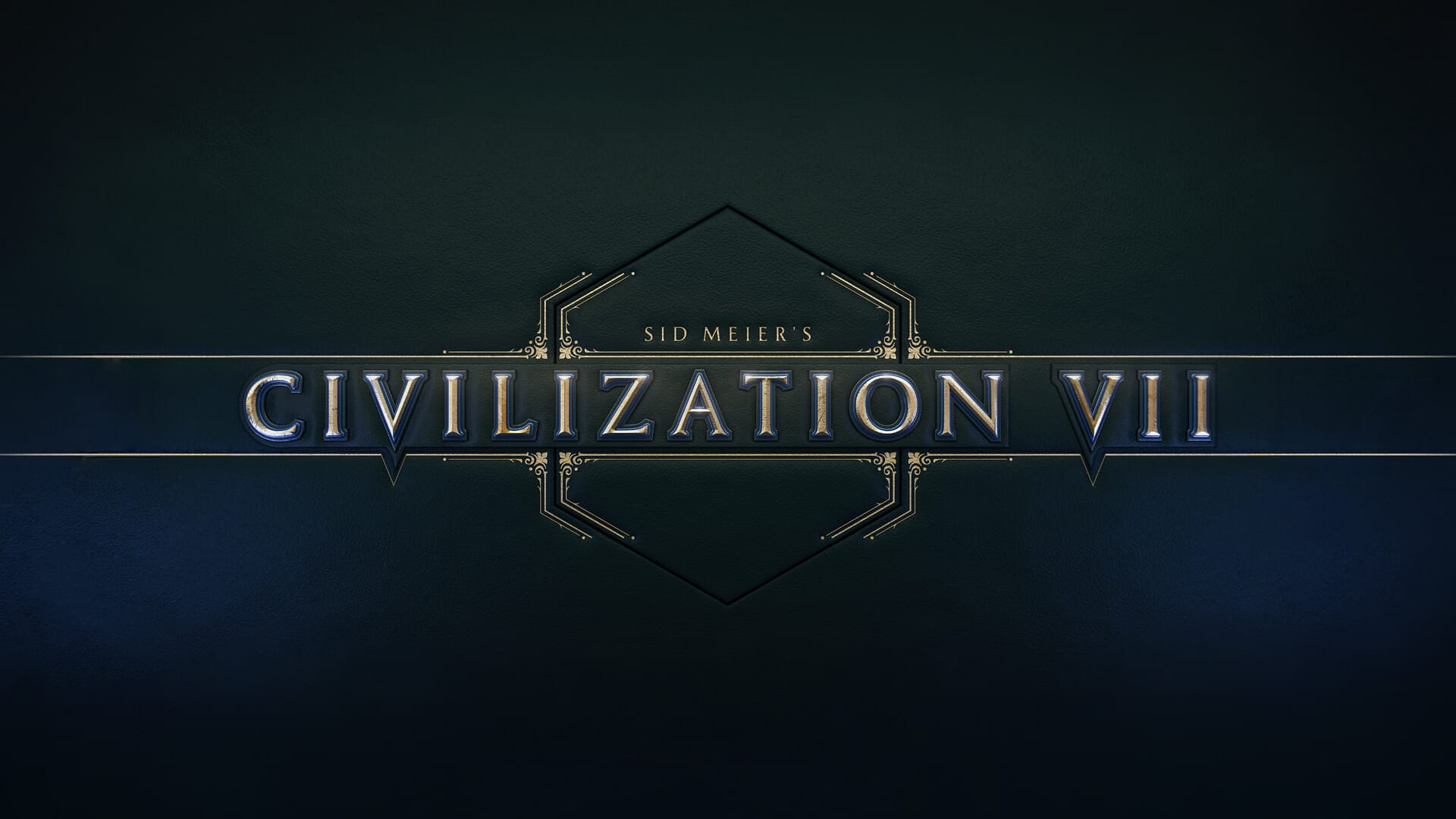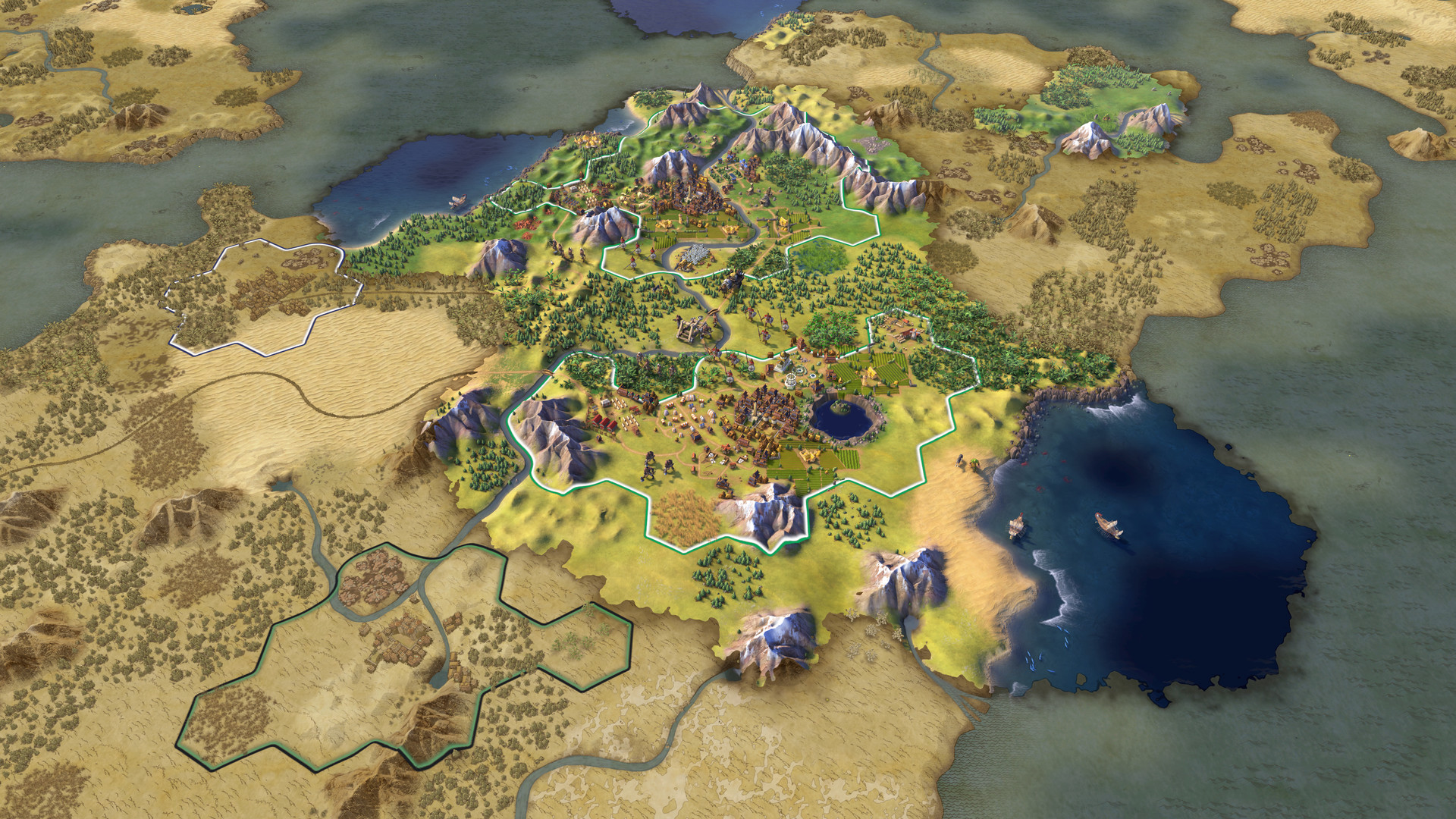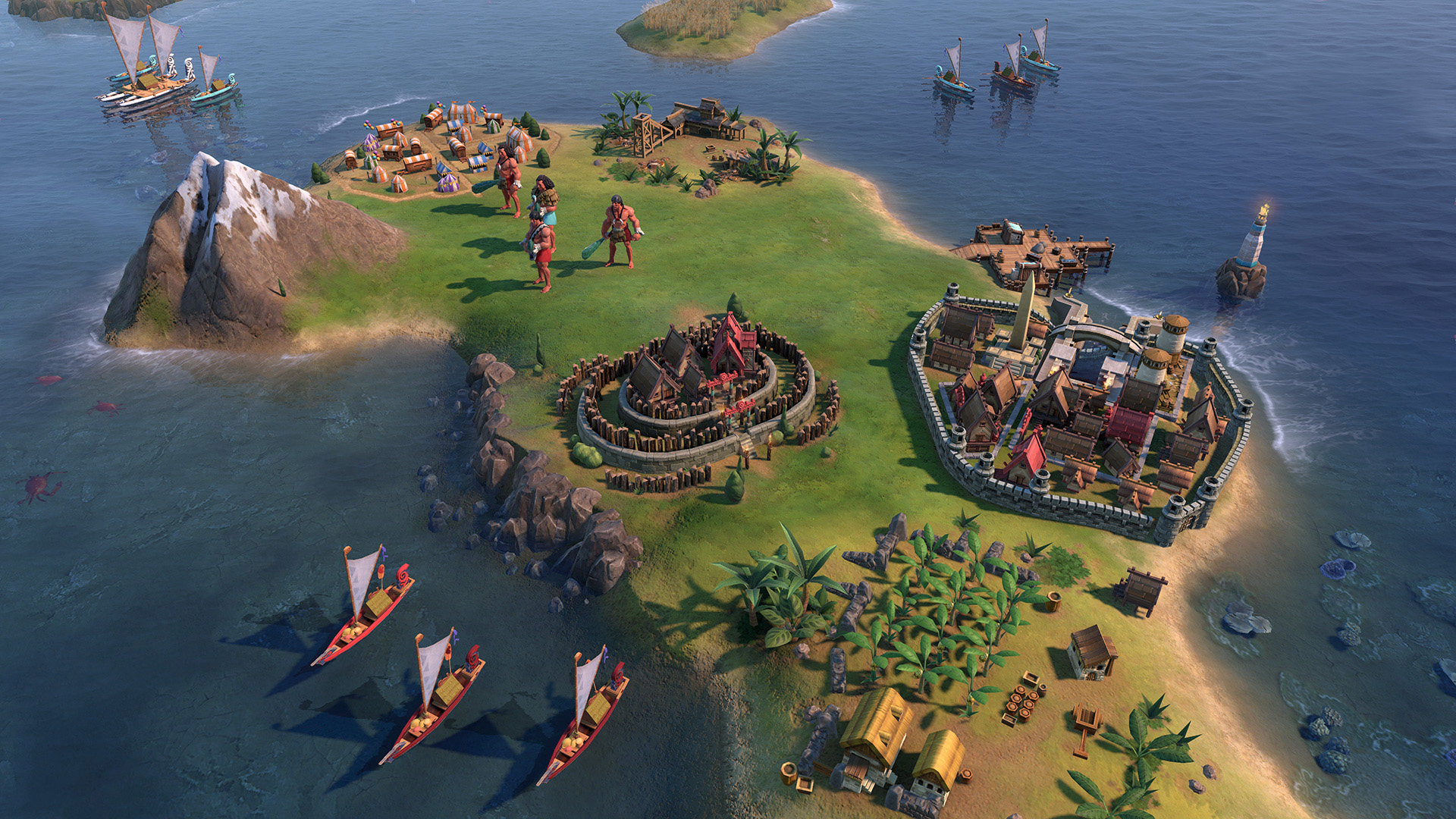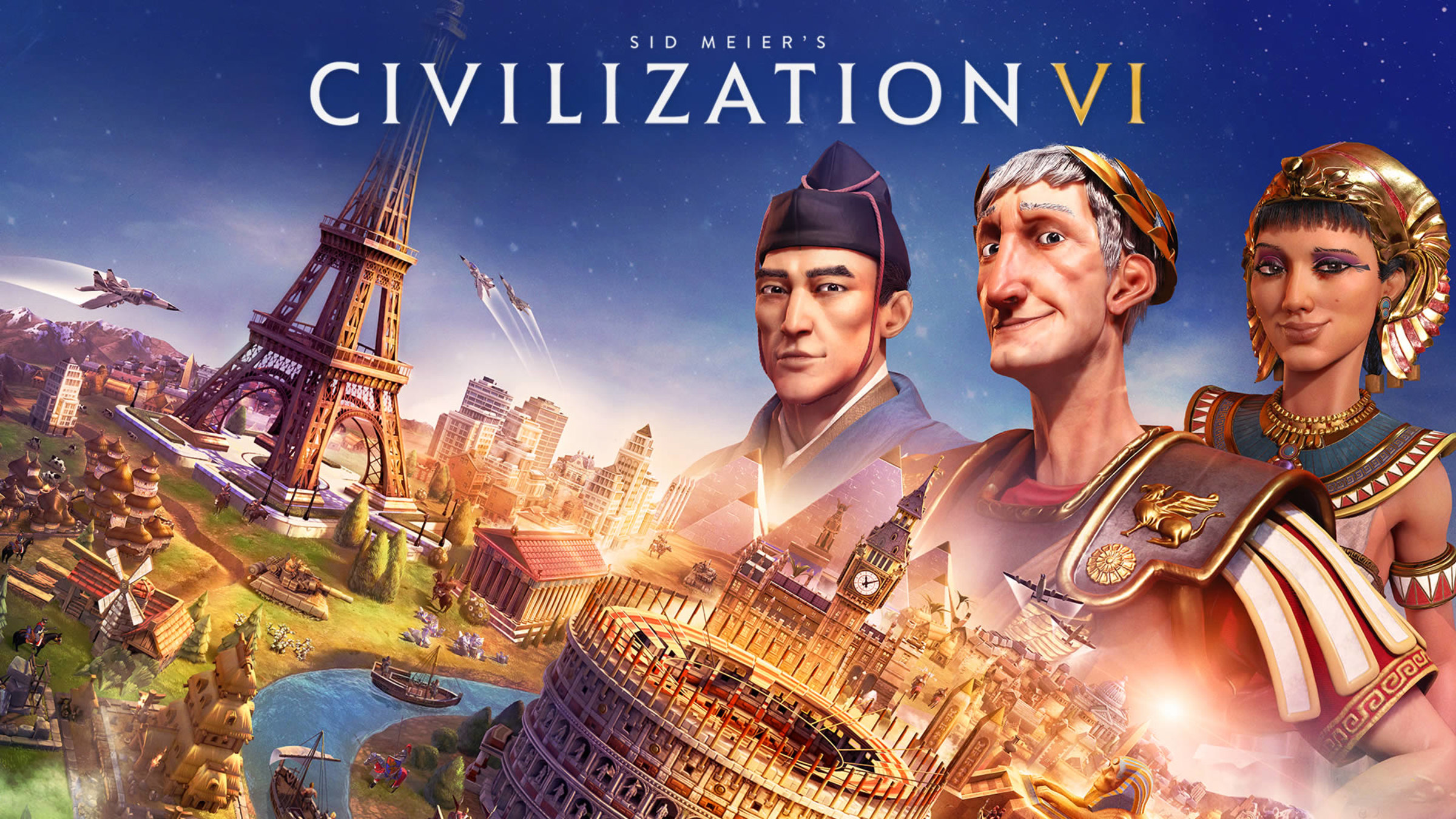Will Civilization VII Finally Get the Tech Tree Right?
How will Civilization VII deal with its tech tree?

For strategy fans, one of the biggest pieces of news from the barrage of summer showcases was the long-awaited announcement of a new Civilization game. We're certainly overdue; with Civ (like everything else) transitioning to a live service-lite model, brand-new releases are coming farther apart. The people who started frantically searching for Civilization VII around the time that Civilization VI launched can certainly sleep easy.
That being said, we don't have much information, or any specific information, aside from the fact that Civ VII is somewhere on the horizon. 2K and Firaxis have promised more details in August, which will inevitably lead to rounds of analysis, scrutiny, criticism, and planning. What are the key mechanics? Have they changed any of the things that people have complained about? Which countries will be available out of the gate? Will we once again be subjected to the worst people in the fandom complaining about how it "looks too much like a console game," whatever that even means? These are all questions waiting for answers.
I suspect that different people are anticipating different aspects. Some want to see what combat will look like. Some want to get a handle on unique units and civilization abilities. For me, it's all about the technology tree. As someone who's obsessed with being ahead of time in tech, this is what I always scope out first.
I anticipate being disappointed because no strategy game has ever gotten the tech tree exactly right. Frankly, I'm not sure perfection is even possible.

This isn't to say that they're not trying. Civilization VI featured two very profound changes to technology: The Eureka system, which added little mini-quests to speed up research on specific upgrades, and the splitting of "social" technologies into an entirely separate tree. Both of these were significant improvements, but they still failed to address all the problems I've noticed.
So let's discuss those problems and all the ways that a developer might address them.
Issues with tech tree design
Most people probably don't have serious problems with the Civilization tech tree. It's certainly a functional mechanic, and the trees have improved greatly from earlier versions, shedding useless upgrades and making the overall design more intuitive, for example. That doesn't mean there's no room for improvement, though.
Balance issues and key technologies
The most obvious issue with tech trees is something that Firaxis has already been working on for a while now: balance issues. In older Civilization and Civ-type games, there were inevitably a handful of key technologies that any half-competent player would race toward, often ignoring everything else in the way. Often, these techs unlocked Wonders or their equivalents, which could be game-breakingly powerful in earlier games.
Both Civilization VI and Beyond Earth (and even Civ V to a lesser extent) showed signs of Firaxis trying to fix this. These games feature less powerful Wonders that are nice to have but not worth prioritizing, as well as more types of units to create more nuance in the combat. Even so, most victory types have certain essential developments that encourage this race for certain tech upgrades.
Contribution to third-act problems
Strategy games in general can have some serious issues during the late game. Put bluntly, the end of any strategy campaign can be boring. Civilization games in particular suffer from the "next turn" problem, with a player pursuing a Space Race or other late-game victory type, absentmindedly tapping the "End Turn" button for the last thirty minutes or so.
While this isn't directly a tech tree problem, the two issues are tied together. End-game technologies should feel really impressive, but the player is far more likely to just ignore anything developed in the last fifty turns or so. Either you're already on track to hit a victory condition, or you're falling short and whatever unit or building you unlock isn't going to be around long enough to change that. Technologies developed in the fifty turns before are unlikely to play much of a role in the game, simply because everyone's strategy is largely set by that point.
Narrative issues
The most abstract problem with the standard Civ tech tree is how artificial it feels.
This didn't matter all that much in older strategy games, which more resembled board games. However, strategy games have been developing in a more narrative-focused direction, and that includes Civilization. In Civ II, it was amusing that you could potentially start the Apollo program without having ever developed the wheel. It feels much more false in a modern game, and so does the idea that your country could so consciously focus its technological development.

Alternatives to the standard Civ tech tree
While some variation on the tech tree is still standard in the strategy space, there have been plenty of games - ranging from very early 4X titles to recent indies - that took other approaches. Whether these are viable options depends on a wide range of factors, including the game's overall focus (big-picture strategy vs. turn-to-turn tactical), scope, setting (historical vs. speculative), speed, and complexity.
Linear tech tree/tech tracks
A few games have simplified their tech trees to the point where they feature linear tracks down which players can advance as far as they want.
An extreme example of this is Europa Universalis 4, which features three tracks for administrative, diplomatic, and military advancements. Each track consumes a different resource, so there are no real decisions beyond deciding when to unlock the next level. This is clearly too restrictive for a series like Civ; I'm not sure anyone would or should accept it. It works in EU4 because of that game's focus on strategy over tactics - technology isn't about specific choices, but rather a component of resource management.
A more robust version can be seen in some of the older Galactic Civilizations games, in which there are many tracks that represent specific upgrades - weapons, trade, industry, etc. This solves the problem of having to unlock undesired technologies - a player in need of happiness-generating buildings can simply pursue the appropriate track without needing to research anything else first. It's not a nice narrative fit for a historical game, though, and only feels natural in GalCiv because the upgrades are more abstract in its sci-fi setting. It's also worth noting that GalCiv has moved away from this in the most recent release.
Tech web
Firaxis' own Beyond Earth experimented with a nonlinear tech tree. Rather than moving along in a fixed direction, players can develop their technology down three distinct paths representing not just different scientific disciplines, but different philosophical approaches to the relationship between humans and the alien planet. There's no specific endpoint, and many upgrades feature ample "leaf technologies" - nonessential upgrades that players only need to pursue if they are useful.
The tech web is a really interesting idea, but like most things in Beyond Earth, it's not exactly well-regarded.
I think one of the problems was the attempt to connect technology with philosophy. The idea was that players would select whatever upgrades were immediately useful, and this would guide them down one of the three paths. For example, a player in bad starting terrain would seek out technologies that helped clear that terrain and make it useful, pushing them down the Purity path. The problem is that there were perks (including unique victory conditions) that really required the player to commit to one of those three paths from an early point in the game, so it wasn't exactly a natural exploration.
Besides that, this is another situation where it just works better in a speculative setting than a historical one. Real-life technological development isn't as linear as people assume, but in a history-themed game, we still expect events to proceed in a manner similar to history.

Tech tiers
The tiered approach, as far as I know, has never been tried in this context. Tiered upgrades have been used as a replacement for skill trees (for which a tech tree is just the strategy equivalent), and even the Civilization series has experimented with tiers, such as in the ideology system in Civ V. The notion is that the player would not need to research specific precursor technologies to unlock the next one, but would unlock a new era of technologies after researching enough from the previous era.
Tiered upgrades are sometimes used in other games (such as action RPGs) because they are seen as less restrictive than skill trees. With tiers, the player isn't forced to take unnecessary upgrades to gain access to desired ones. Such a system would allow for a lot of flexibility while still keeping clearly defined eras in place.
The drawback (and the reason I think this hasn't been tried) is that it doesn't seem all that narratively satisfying. Research is an iterative process, and a tiered system would allow a player to skip what would seem like keystone technologies. Honestly though, if it's done right, a tiered tech upgrade system might actually be more realistic than a conventional tree, as it would capture real-world concepts such as the advantage of backwardness. Every society didn't have to invent the wheel ex nihilo - you ultimately know what your neighbors know.
Random/blind research
Alpha Centauri added an interesting twist to the tech tree, one that was radical enough that Firaxis enabled players to turn it off (and, full disclosure, I usually did). Technologies in Alpha Centauri are divided into four categories - Explore, Discover, Build, and Conquer, loosely mapping onto the 4X concept. Rather than researching specific techs, the player sets research priorities and then gets either a tech in that category or a precursor to one. Thus, a player looking to develop an economic base might set Discover and Build as priorities to gain new base facilities.
So what was so wrong with this concept that no one bothered trying it again for almost a quarter of a century? For one, Alpha Centauri has an old-school tech tree, with Secret Projects (their equivalent of Wonders) that can be so disgustingly powerful that some strategies are designed around them. When a single Project can make or break your playthrough, blind research is a massive disadvantage.
Alpha Centauri's tech tree is also big and messy, and that makes it too unintuitive for this system to work as intended. Say you're focusing on your military, so you do the sensible thing and focus on Conquer tech. You might not get a single Conquer tech for a while if you lack the prerequisites for them (which can include techs in the other three categories), but it doesn't matter because most of the weapons, armor, and unit types are unlocked by other tech types. It's simply not intuitive enough for blind research to work.
I think some variant of blind research could work with Civ's current style of tech tree. The more streamlined and balanced trees from the last few games are already split nicely into de facto categories (transport, civic, military) that make this much more sensible. But would players accept it? As I said, even the original version had an option to go back to the standard tree.

Narrative-linked upgrades
The most interesting prospect is foregoing a tech tree altogether. I don't mean eliminating tech upgrades altogether, though this has been done; tech-free strategy games are restricted to those with unorthodox settings, such as the high fantasy setting in Master of Magic. What I mean is getting rid of a purposeful tech tree in favor of tying tech upgrades directly to the player's actions.
This is another concept that Firaxis has played with. The Eurekas and Inspirations of Civ VI are kind of a lightweight version of this concept. Research speeds up based on how the player's civilization is growing - a country with cities on coasts will naturally develop sailing faster, those with lots of archers will gain access to better bows, and so on. It's an interesting way to blend mechanics and narrative in a way that really suits the new direction strategy games have been growing.
Would it be possible to go farther? I have seen games in which tech development is based wholly on the player's natural actions, but these tend to be city builders and base builders - distant cousins of strategy, with similar design principles but very different objectives and sensibilities. In a game that's innately competitive, a narrative-based tech tree becomes just another thing to manipulate, which is exactly what happened with Eurekas in Civ VI.
This is maybe the most interesting possibility, but also the hardest to put into effect. Maybe someday we'll see a system like this, but probably not in Civilization.
Non-tree tweaks
Most of the problems I've identified don't necessarily demand radical changes to the tech tree. A standard tree with some under-the-hood adjustments can accomplish the same thing without upsetting anyone.
I've already explained one way that Firaxis has done this - less powerful Wonders to discourage tech tree races. Other issues can be addressed in similar ways. Third-act issues can be overcome by staggering the emergence of game-changing developments. The slow pace of the endgame can be addressed with more flexible victory conditions that require more attention and input from the player. The narrative issue is trickier, but a few changes in how tech trading works and a sprinkling of random events could do wonders here.
Does it really matter?
Firaxis will almost certainly experiment with the tech tree, but I don't expect any game-changing differences. My guess is that you'll see an expansion and refinement of the Eureka system, more leaf techs to add flexibility, and perhaps some new mechanics to make the technology and civics trees feel more distinct. They may not even go that far, and could just move a few things around.
Why not make more profound changes? As much as we like to talk about "balance" as this perfect end-state of video games, it's not clear that the actual consumers really care. To the people who end up buying Civilization VII, what's important is that the tech tree be creative and intuitive, and these are things that Firaxis does reasonably well.
Honestly, it's probably for the best. I said at the beginning that perfection is likely impossible. It doesn't matter how flawlessly balanced your system is, someone is going to find a way to break it. For many strategy fans, that's the whole reason they gravitate toward these games in the first place. Make it perfect, and you're just going to encourage them to try harder.
So while I'm curious as to what Firaxis might pull, I'm not sweating too much over it. After all, I'll likely end up as one of those people trying to break the system.
